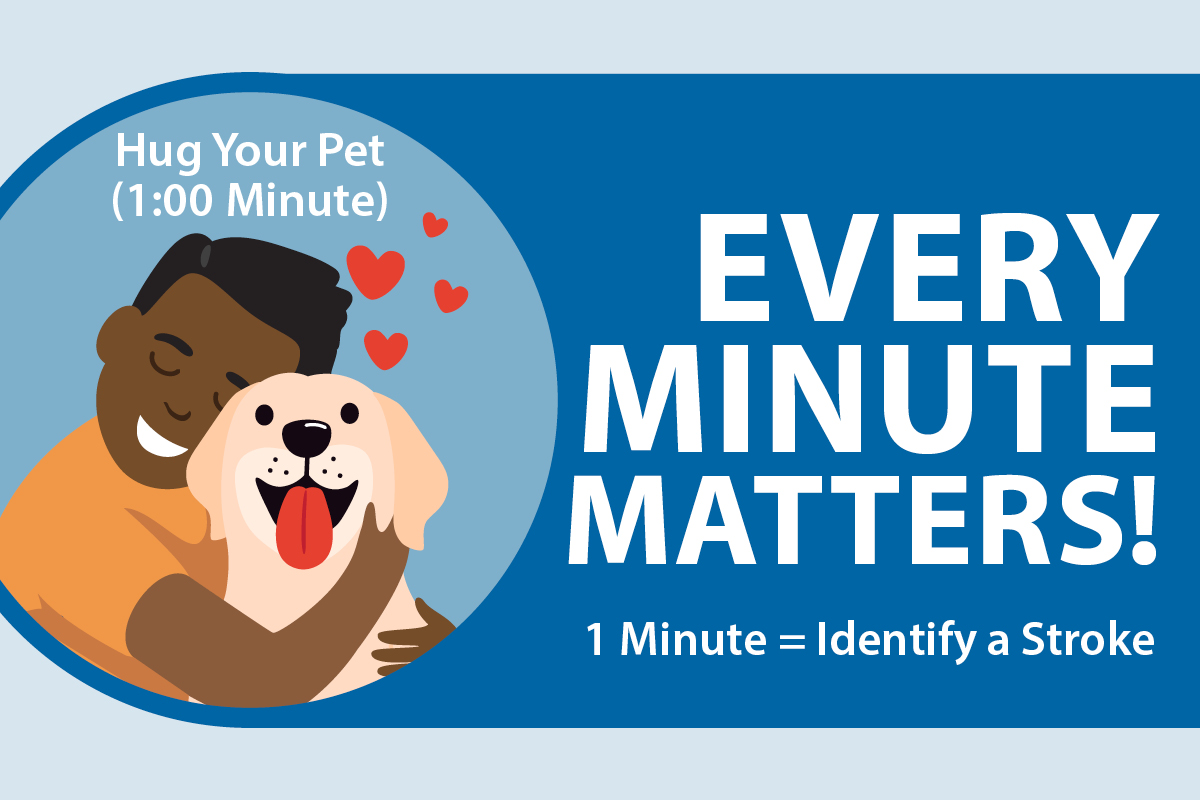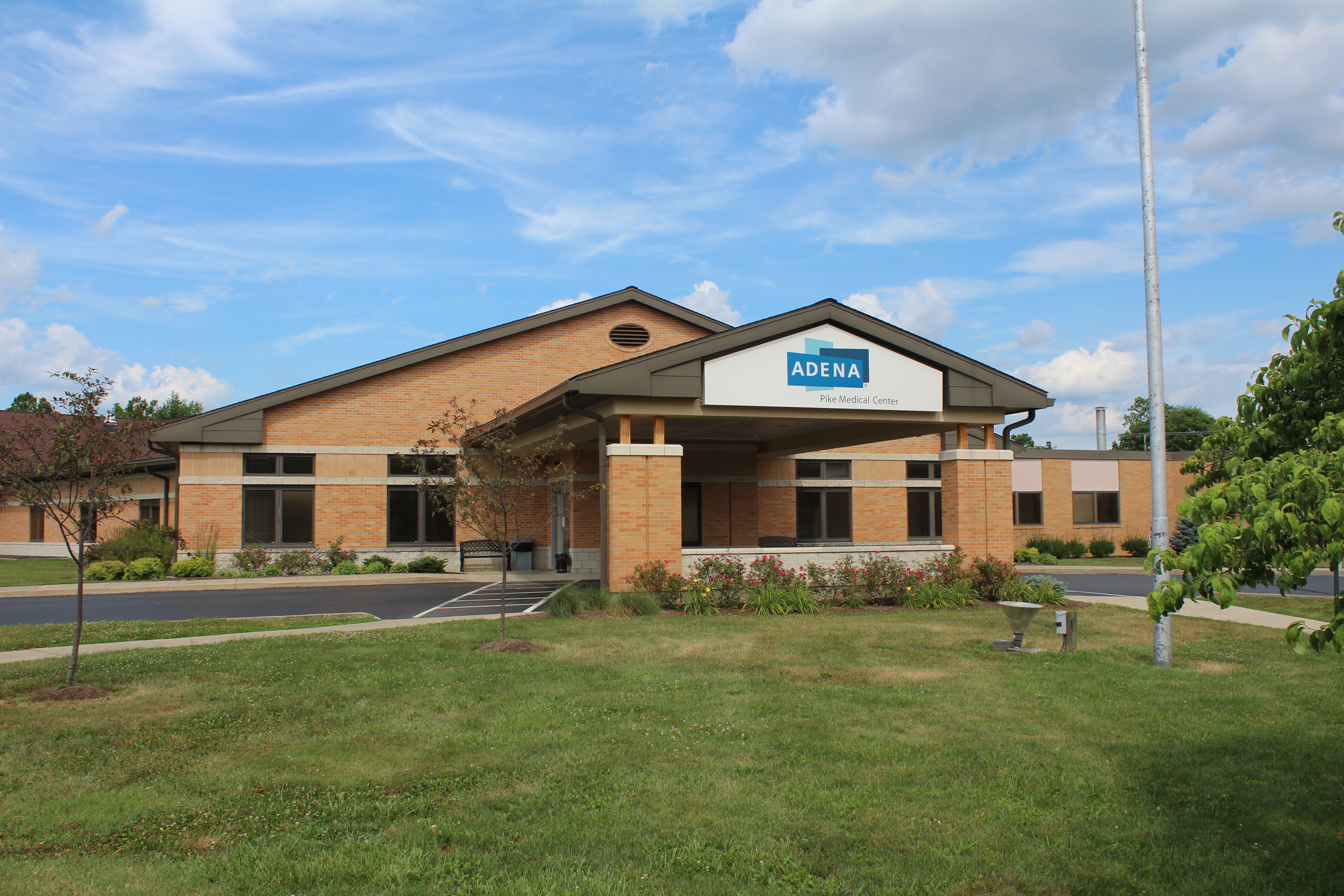Stroke: Every Minute Matters!

When a patient experiences a stroke, every minute matters. Know the signs and call 911 immediately and rely on Adena’s Stroke Team to help you with their many therapy and recovery options.
Each year, we recognize May as Stroke Awareness month. It’s important to call attention to stroke symptoms so that anyone experiencing signs of a stroke can recognize them and react, quickly.
According to the Centers for Disease Control and Prevention (CDC), in the U.S., someone has a stroke every 40 seconds; every four minutes, someone dies of stroke. It is the leading cause of death in the U.S. and the risk of stroke varies with race and ethnicity.
A stroke occurs when there is a disruption of blood flow to the brain, preventing brain tissue from getting oxygen and nutrients and causing brain cells to die within minutes. There are two main causes of stroke: a blocked artery (ischemic stroke) or a leaking or bursting blood vessel (hemorrhagic stroke). For some people, they may only experience a temporary disruption of blood flow to the brain, known as a transient ischemic attack (TIA), that doesn't cause lasting symptoms.
Factors that put people at risk for stroke include existing medical conditions like high blood pressure, smoking or secondhand exposure, high cholesterol, diabetes, obstructive sleep apnea, history of heart or cardiovascular disease, family history of stroke or heart disease or possibly patients who have had a COVID-19 infectionAdditional contributing health factors, such as excess weight/obesity, lack of exercise, binge or heavy alcohol use, or use of illegal drugs like cocaine or methamphetamine, can also increase stroke risk. People over 55 are at higher risk of having a stroke and men tend to be more at risk for strokes then women.
Since a stroke can be fatal, it is important to know the signs. Strokes come on suddenly and progress rapidly, causing permanent disability quickly if not treated. A common way to remember the signs of stroke is by using the acronym BE FAST. It also helps people remember that every minute matters if they or a loved one are experiencing stroke symptoms. The symptoms representing BE FAST are:
B = Balance – is the person having trouble standing or maintaining balance?
E = Eyes – is the person experiencing blurred, double or loss of vision in either or both eyes?
F = Facial drooping – does one side of the person’s face appear droopy or seem numb? Ask the person to smile.
A = Arm weakness – has the person lost strength in one of his/her arms? Ask them to raise both arms and see if one arm drifts or they can’t control.
S = Speech – is the person’s speech slurred or they are unable to speak. Ask them to repeat a simple sentence over and over, like “The sky is blue.”
T = Time to call 911 – if a person displays any of these symptoms, call 911 and/or get them to a hospital as quickly as possible.
Remember, minutes matter. If you suspect you or another person are experiencing a stroke, call 911 and get help immediately.The Stroke Team at Adena treats patients with a range of therapy options to help each patient work toward recovery. Adena Regional Medical Center (ARMC) is certified as a Primary Stroke Center and has an established protocol; providing fast treatments for patients in order to greatly reduce chances of long-term disability. Adena has been recognized by the American Heart Association/American Stroke Association (AHA/ASA) with the Get with The Guidelines® Stroke Gold Plus achievement award and has won The Ohio State University quarterly Door-to-Needle Challenge in October 2020,with the fastest time to respond in getting stroke patients onto a life-saving IV.
Adena’s Stroke Team includes neurologists, emergency physicians, nurses, social workers, rehabilitation experts, hospitalists, radiologists and lab technicians. They work together and sometimes with external partners, such as the physicians at The Ohio State University Wexner Medical Center, when additional consultation is required. When a stroke patient arrives at the emergency department, Adena staff work to ensure a provider sees the patient within 10 minutes. Tests and scans are taken quickly with a goal to have results read within 45 minutes.
Adena’s Stroke Team knows that each person is unique and they approach each patient’s stroke treatment with individualized care. No matter the treatment or recovery therapy (physical, occupational or speech), Adena’s dedicated providers are here for you. If you or a loved one have experienced a stroke or are concerned about risks, call Adena Neurology at 740-542-6797 or visit www.Adena.org/stroke for more information.


Quality of Adena Pike Medical Center’s acute stroke ready care recognized with certification renewal